第43章 III(3)
It was only natural that in so peculiar a situation, in which the elements of power, passion, and pride were so strangely apportioned, there should have been occasionally something more than mere irritation--a struggle of angry wills. Victoria, no more than Albert, was in the habit of playing second fiddle. Her arbitrary temper flashed out. Her vitality, her obstinacy, her overweening sense of her own position, might well have beaten down before them his superiorities and his rights. But she fought at a disadvantage; she was, in very truth, no longer her own mistress; a profound preoccupation dominated her, seizing upon her inmost purposes for its own extraordinary ends. She was madly in love. The details of those curious battles are unknown to us; but Prince Ernest, who remained in England with his brother for some months, noted them with a friendly and startled eye. One story, indeed, survives, ill-authenticated and perhaps mythical, yet summing up, as such stories often do, the central facts of the case. When, in wrath, the Prince one day had locked himself into his room, Victoria, no less furious, knocked on the door to be admitted. "Who is there?" he asked. "The Queen of England" was the answer. He did not move, and again there was a hail of knocks. The question and the answer were repeated many times; but at last there was a pause, and then a gentler knocking. "Who is there?" came once more the relentless question. But this time the reply was different. "Your wife, Albert." And the door was immediately opened.
Very gradually the Prince's position changed. He began to find the study of politics less uninteresting than he had supposed; he read Blackstone, and took lessons in English Law; he was occasionally present when the Queen interviewed her Ministers; and at Lord Melbourne's suggestion he was shown all the despatches relating to Foreign Affairs. Sometimes he would commit his views to paper, and read them aloud to the Prime Minister, who, infinitely kind and courteous, listened with attention, but seldom made any reply. An important step was taken when, before the birth of the Princess Royal, the Prince, without any opposition in Parliament, was appointed Regent in case of the death of the Queen. Stockmar, owing to whose intervention with the Tories this happy result had been brought about, now felt himself at liberty to take a holiday with his family in Coburg; but his solicitude, poured out in innumerable letters, still watched over his pupil from afar. "Dear Prince," he wrote, "I am satisfied with the news you have sent me. Mistakes, misunderstandings, obstructions, which come in vexatious opposition to one's views, are always to be taken for just what they are--namely, natural phenomena of life, which represent one of its sides, and that the shady one.
In overcoming them with dignity, your mind has to exercise, to train, to enlighten itself; and your character to gain force, endurance, and the necessary hardness." The Prince had done well so far; but he must continue in the right path; above all, he was "never to relax." "Never to relax in putting your magnanimity to the proof; never to relax in logical separation of what is great and essential from what is trivial and of no moment; never to relax in keeping yourself up to a high standard--in the determination, daily renewed, to be consistent, patient, courageous." It was a hard programme perhaps, for a young man of twenty-one; and yet there was something in it which touched the very depths of Albert's soul. He sighed, but he listened--listened as to the voice of a spiritual director inspired with divine truth. "The stars which are needful to you now," the voice continued, "and perhaps for some time to come, are Love, Honesty, Truth. All those whose minds are warped, or who are destitute of true feeling, will BE APT TO MISTAKE YOU, and to persuade themselves and the world that you are not the man you are--or, at least, may become... Do you, therefore, be on the alert be times, with your eyes open in every direction... I wish for my Prince a great, noble, warm, and true heart, such as shall serve as the richest and surest basis for the noblest views of human nature, and the firmest resolve to give them development."